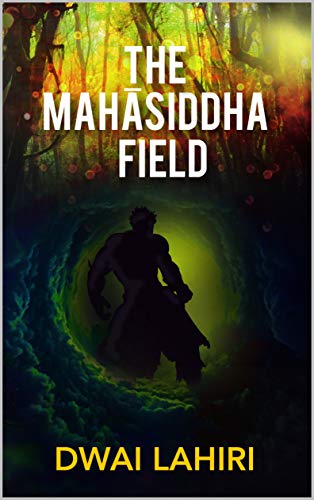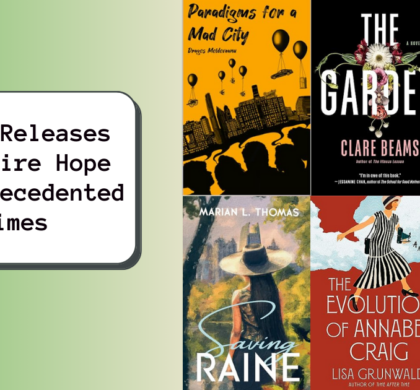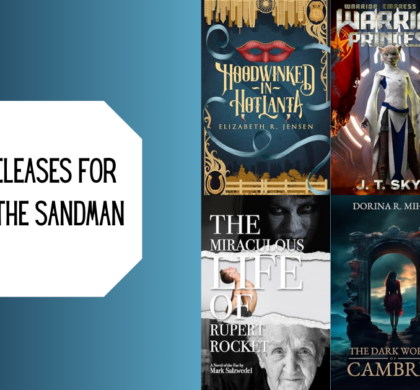Interview with Dwai Lahiri, Author of The Mahāsiddha Field
31 Mar 2020
What can you tell us about your new release, The Mahāsiddha Field?
The Mahāsiddha Field is the fruit of 9 years of effort which saw a few starts and stops due to life’s demands. The book is a mashup of multiple genres that are very dear to me — Sci-fi, Fantasy, Indian Mythology, Wuxia (The Chinese Martial hero stories) and Eastern Metaphysics.
It encompasses what I could call my life lessons over the past twenty years, which I hope I have been able to share with the readers in an entertaining manner.
As a person of Indian origin, I grew up on a staple and rich cultural diet based on Indian mythology — the stories of the Gods (Devas), Demons (Asuras) and the tales of their exploits, and how they interacted with the ‘mere mortals’. A very powerful motif that stayed with me from those stories (called Purānas and Itihāsa in Sanskrit and other Indian languages) was the role that the sages (Rishis) played in not just being the guides and teachers of all parties involved (Gods, Demons and Humans), but also as preceptors of the spiritual and metaphysical wisdom of the Indian civilization.
However, over the past three decades, that entire genre of what I call the wisdom traditions seems to have fallen on the wayside — discarded for what people consider a more ‘modern’ worldview. So as part of this book series, I have tried (and intend to continue) to re-imagine the world where these Asuras can come back, and what would befall humanity should such an event occur?
I have also tried to explore the sometimes clichéd topics such as ‘Good vs Evil’ through an Eastern metaphysical lens — Is there such a thing as Absolute Good and Absolute Evil? Can a thing of power become a force for Good or a force of Evil depending on who wields it?
But just to assuage potential readers’ fears about this book (and series) being too intensely cerebral, it really is about action and adventure, time travel, interdimensional portals and wuxia cultivation fantasy. It is about martial adventure, magic set in a dystopian futuristic world with technology gone awry in the wrong hands.
What or who inspired you to become an author?
I’ve been an avid reader since I can remember having learnt to read — I devoured multiple series by Enid Blyton when I was in the first and second grade, and progressed on to reading what Indian kids of my generation would read — Hardy Boys, The Three Investigators, various comic books and always the rich and exciting stories of Indian Mythology. My paternal grandfather was an author, actor, visual artist and poet and he encouraged and helped inculcate a love for literature in me. I would credit his influence as the primary one for my wanting to be an author.
What’s on your top 5 list for the best books you’ve ever read?
My top five list would be as follows (not in any particular order) —
The River God by Wilbur Smith
The Lord of the Rings by Tolkien
Don Juan and the Yaqui Way of Knowledge by Carlos Castaneda
The Autobiography of a Yogi by Paramahamsa Yogananda
Tripura Rahasya (meaning — The Mystery of the Three Worlds, a classic Indian metaphysical novel/text (originally in Sanskrit) — the translated version which I love is by Swami Ramananda Saraswati)
Of course my top 5 keep changing and it is next to impossible to pin books down in any hierarchy — they are all wonderful. All I really care about in a book is whether it can fully transport me into a world created by the author.
Say you’re the host of a literary talk show. Who would be your first guest? What would you want to ask?
For a literary talk show, I’d love to have Neil Gaiman as my first guest. I am very curious about his interest in Norse Mythology and of course his book ‘The American Gods’. I would like to find out from him his process of research. How deep was his research into a book such as American Gods, and how much Artistic license did he take with the topics?
What’s your favorite thing about writing?
For me, the fun starts when I enter the writing ‘zone’ — ideas flow freely, and it is almost as though the story writes itself. Worlds come alive in the words, and something greater than the sum total of my intellect, the time I’ve put in and the words committed to the manuscript is brought to life. I guess that is the same for the creative process across media (as a ‘self-professed’ competent amateur musician, I can relate to that in composition/improvisation aspects in that medium too).
What is a typical day like for you?
I have a full time job in a software company, so my week days are spent in pretty mind-intensive work. After executing my duties towards my family, my evenings and weekends are spent in pursuing my passion for writing (not everyday unfortunately) and also trying to learn the business side of being an Indie Author.
What scene in The Mahāsiddha Field was your favorite to write?
I’ll try to do that without revealing the plot. In the final part of the book, there is a final battle between the protagonists and those who threaten humanity from across dimensions. This was especially fun to write as it involves elements of extremely high level internal martial arts and spiritual mastery.
Do you have a motto, quote or philosophy you live by?
The great Indian sage, Swami Vivekananda, who was instrumental in bringing Yoga and India’s perennial philosophy ‘Vedanta’ to the West, called us “children of immortal bliss”. If we understand the meaning of that compliment, we can live without fear of failure (or even success) and become the best version of ourselves. We as sentient beings, carry within us an indomitable and indestructible quality — our Consciousness, which when known in its true form, is the most powerful force in the universe. So in my life, I strive to forever remain a child of immortal bliss — and see the same blissful immortality of consciousness in all of existence.
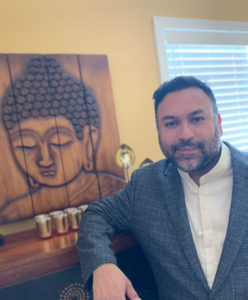
Dwai Lahiri is the author of the new book The Mahāsiddha Field.
Connect with Dwai
Author Website
Facebook
Buy The Book
Sign up for our email and we’ll send you the best new books in your favorite genres weekly.
Related
grant
Recommended Posts
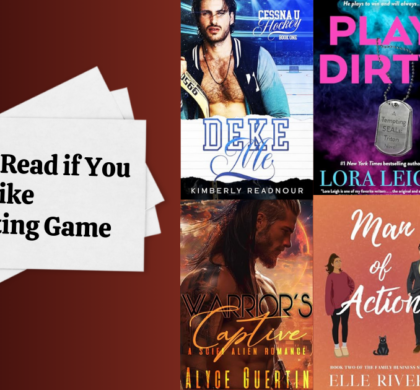
Books to Read if You Like The Hating Game
19 Apr 2024 - Books to Read if You Like..., eBook, News, Romance
